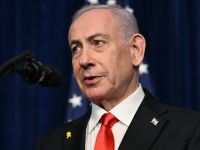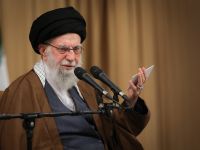Islamic State [Daesh] militants are earning up to £14 million (approximately $20 million) a month by funneling cash looted from Iraqi banks into legitimate currency speculation.
The group seized hundreds of millions of dollars when it ransacked Mosul banks in June 2014, giving it the means to re-inject the cash back into unsuspecting foreign markets.
Yesterday a Foreign Affairs sub-committee heard that this money is routed into financial markets in Jordan, where it is used to play the stock market and then rewired back to ISIS operatives in Iraq.
The move into such a sophisticated method of money laundering provides another platform for the group's funding, along with its well-established oil production, extortion, and harsh local taxes.
The hearing heard ISIS was funding its stock market gambles with money taken from Iraqi civil servants' pension payments as well as looted cash, The Daily Telegraph reported.
Using the alternative acronym ISIL to refer to the group, MP John Baron, the sub-committee's chair, said: 'The cash that ISIL has looted, along with siphoned off pension payments, is routed into Jordanian banks and brought back into the system via Baghdad.
'That allows the system to be exploited by ISIL, in that they take a turn on the foreign currency actions and siphon that cash back.'
The siphoned cash is returned to ISIS operatives by the 'hawala' system of money transfer, an informal transfer system common in the Middle East, the paper reported.
It requires brokers, who know and trust one another, to act and the depositing and withdrawal points for individuals willing to transfer cash to one another.
As the money is not actually shifted between the brokers, they settle the debt incurred by the individuals' withdrawal with one another at a later point.
Last year it emerged ISIS had turned its self declared caliphate across Syria and Iraq into a semi-functional state - and in the process, becoming the wealthiest militant group in history.
The sub-committee was set up to investigate ISIS's funding links to Britain, and how UK politicians can help to stem the flow of money into their coffers.
With an estimated £1.3billion ($1.84 billion) fortune, the group can afford not only to pay foreign fighters who join its cause in the Middle East, but easily expand beyond its borders to launch attacks in the West.
Though figures of its wealth vary widely, one report estimated it was selling £1million ($1.41 million) per day in crude oil and kidnappings were worth £30million ($42.2 million) per annum.
As well as these income streams, it was enforcing taxes of 20 per cent across a population of 10 million, and controlled 40 per cent of Iraq's wheat production.
Christina Schori Liang from the Geneva Centre for Security Policy, offered compelling detail on exactly how ISIS is funding its wholesale slaughter.
She described the 10 oilfields through Iraq and Syria controlled by the militants as its 'black gold'.
'Oil wealth serves several purposes: it provides energy needs for the estimated 10 million civilians living in [ISIS] controlled territory and it helps fuel the war machine.
'More importantly, oil is used as a leveraging device to control its enemies. Many opposition forces are dependent on [ISIS] for diesel.'
By Corey Charlton
Editor's note: This article has been edited from the source material








